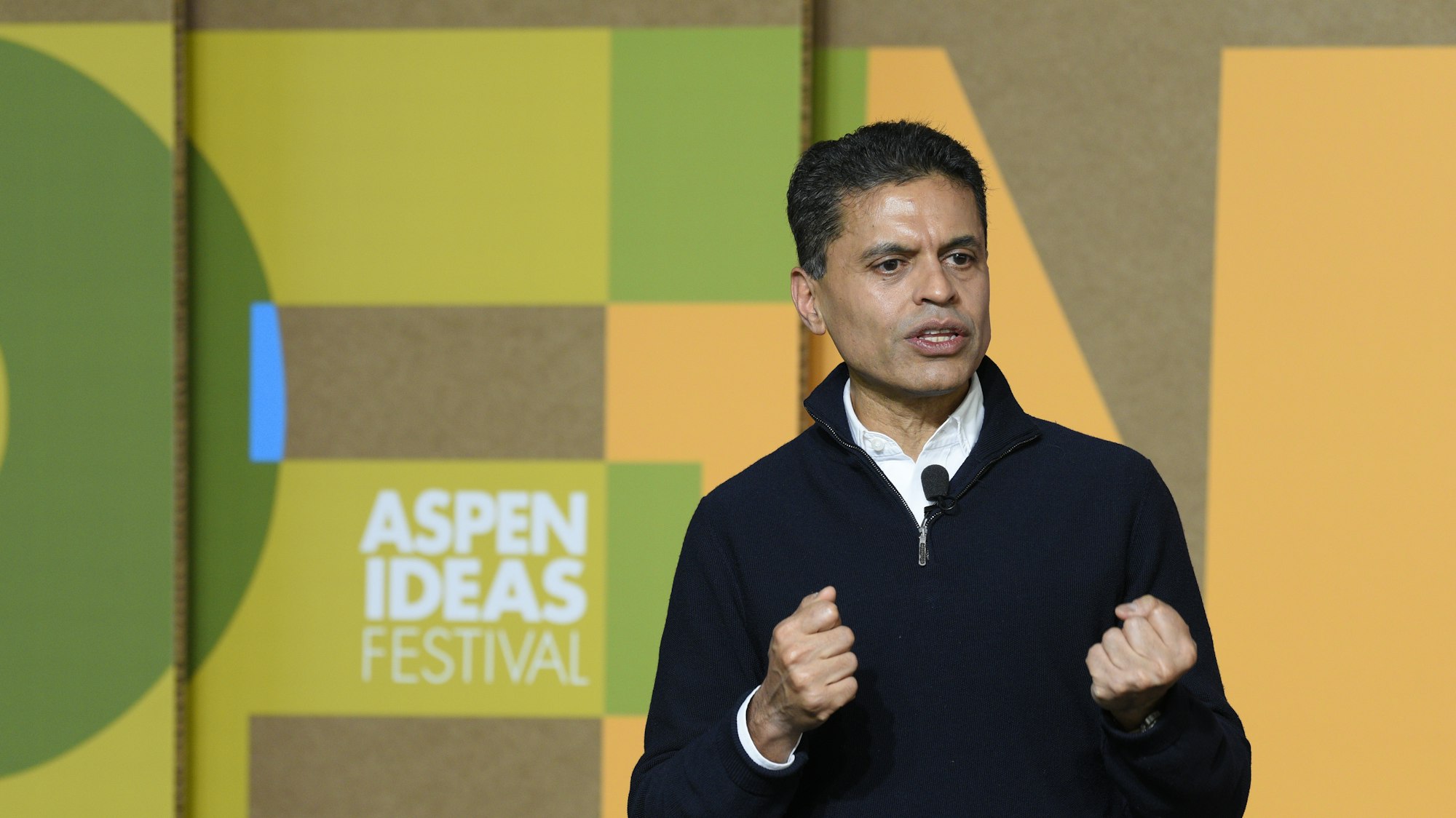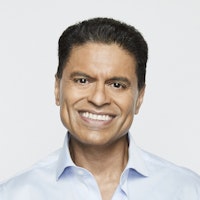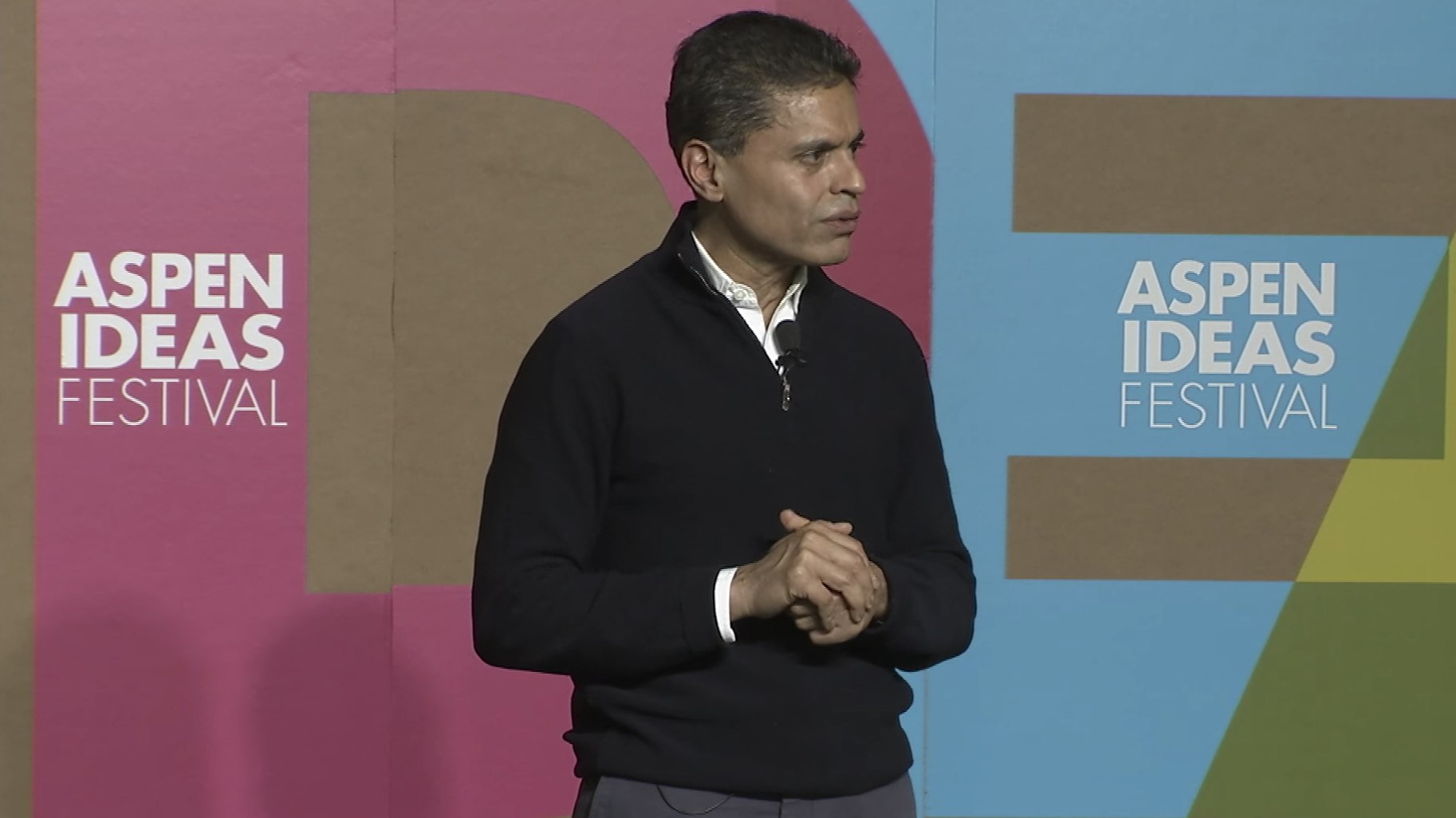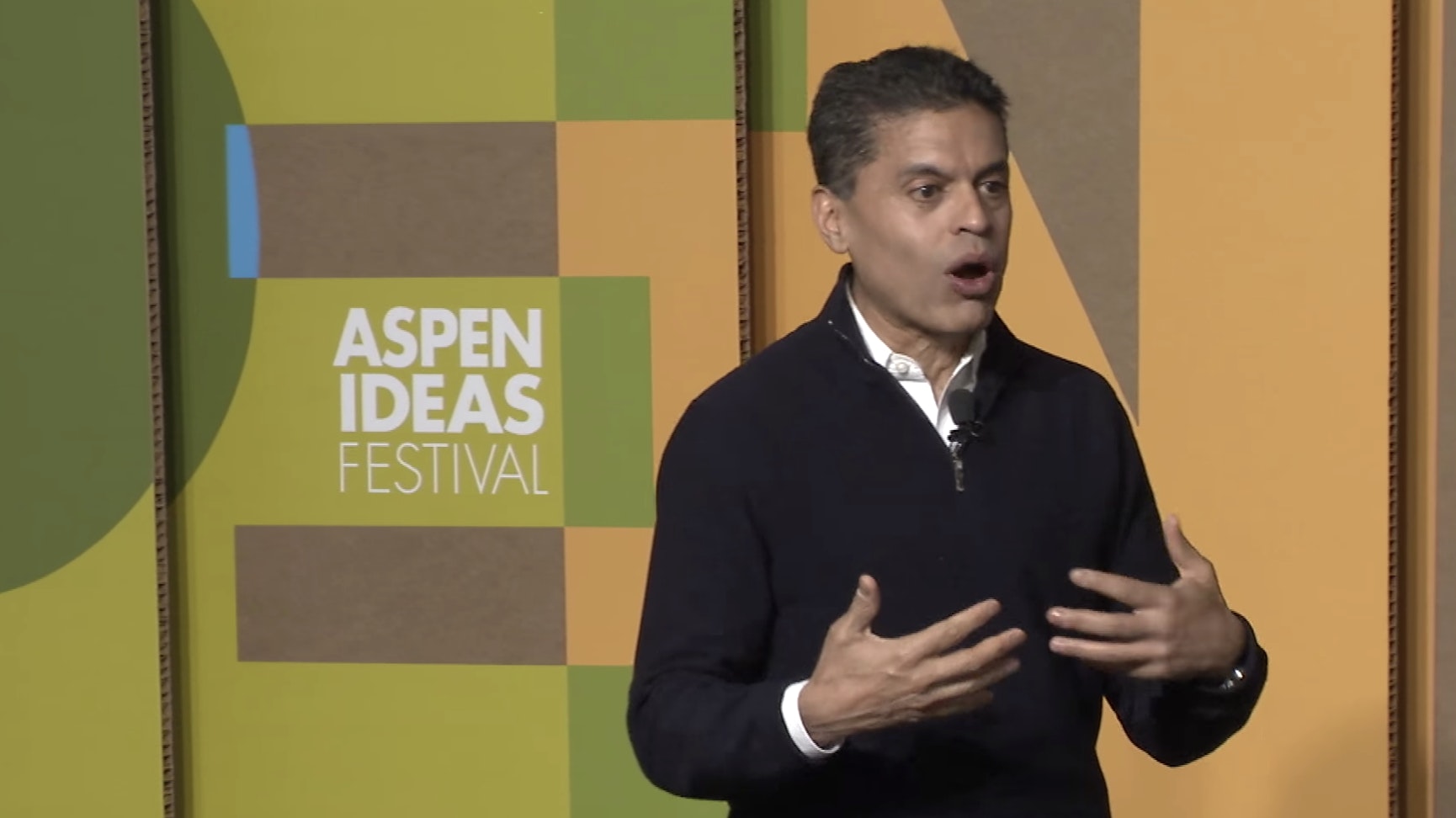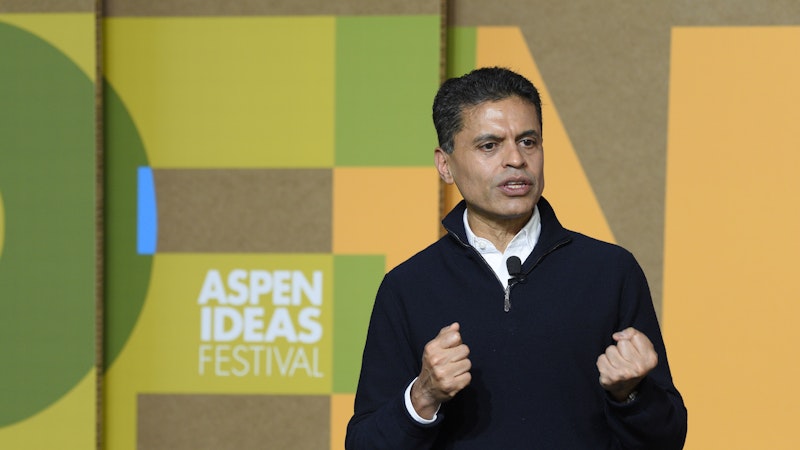
How Did We Get Here? The Roots and Future of Populism
Setup
The confluence of globalization and the information revolution has primed the United States, and the world, for a resurgence of populism. Fareed Zakaria, host of CNN’s “Fareed Zakaria GPS,” explains how the populist ideology helped President Trump win the White House. Trump’s message of cultural anxiety connected with voters, but it’s not an unfamiliar ideology. Zakaria opens the history book and explains how past trends are re-emerging today. He also reflects on the rise and root causes of populism from his own experience, as an immigrant.
Speakers
Ideas
- The world is globalized and hyperconnected, and there’s no going back
- What’s a trucker to do when they’re replaced by a self-driving vehicle?
- Rising immigration is the best bellwether for modern populism.
- Populist leaders become popular by playing the everyman
- America needs to think about job retraining on a massive scale
- 2017 Festival
- USA
The world is globalized and hyperconnected, and there’s no going back
Although smartphones, global supply chains, and artificial intelligence are ubiquitous today, it’s easy to forget just how recently these innovations seemed fantastical. Globalization and the Digital Revolution delivered a one-two blow to the world many people who are alive today thought they had a place in, argues CNN’s Fareed Zakaria. But there’s no way to opt out of these changes.
it’s not just individuals and communities who are grappling with the maelstrom of technology and power. Governments and nations must contend with new rules for how to maintain their own power, nonetheless how to jockey for world position.
Big IdeaA many-to-many network system does not allow for that kind of crucial power that the State had always had — that ability to control information and control the narrative.Fareed Zakaria
What’s a trucker to do when they’re replaced by a self-driving vehicle?
Technological innovations and a global workforce have combined to divorce capital from labor, argues Zakaria. And while that may have some upsides, it’s a harsh reality for many breadwinners to swallow. Their roles in the economy, their identities as professionals, and their purposefully constructed lives are being turned upside down. Watch as Zakaria uses the trucking industry as a prime example of the precipice many blue-collar workers find themselves teetering on today:
The future that many truck drivers see coming in their rear-view mirrors is one that came for American manufacturers, retailers, and laborers, and it’s unnerving.
Rising immigration is the best bellwether for modern populism.
Populism used to be traced back to a single source: the economy. The populism of Latin America in the 20th century, for example, was seen as an almost direct result of dire economic circumstances. So why are many populist movements today springing up in affluent global powers? While every populist movement has its nuance, postulates Zakaria, he argues that this new wave populism is centered around immigrants and immigration.
A century of change
That doesn’t mean economic angst doesn’t play a role; immigrants have been scapegoated for economic turmoil since time immemorial. But modern populists see immigrants not only as an economic threat, but also as an existential one.
Populist leaders become popular by playing the everyman
It’s no secret that most Americans vote with their gut, not shrewd policy analysis. So what makes someone as rich as Donald Trump appeal to blue-collar workers? Zakaria thinks it’s the same thing that made Bill Clinton so popular, and that’s an exceptional ability to be seen as an everyman in a suit:
America needs to think about job retraining on a massive scale
Politicians are quick with words of dismay about the job loss due to globalization and technology that’s central to populism, but they’re short on solutions. Fareed Zakaria thinks he has one:
-
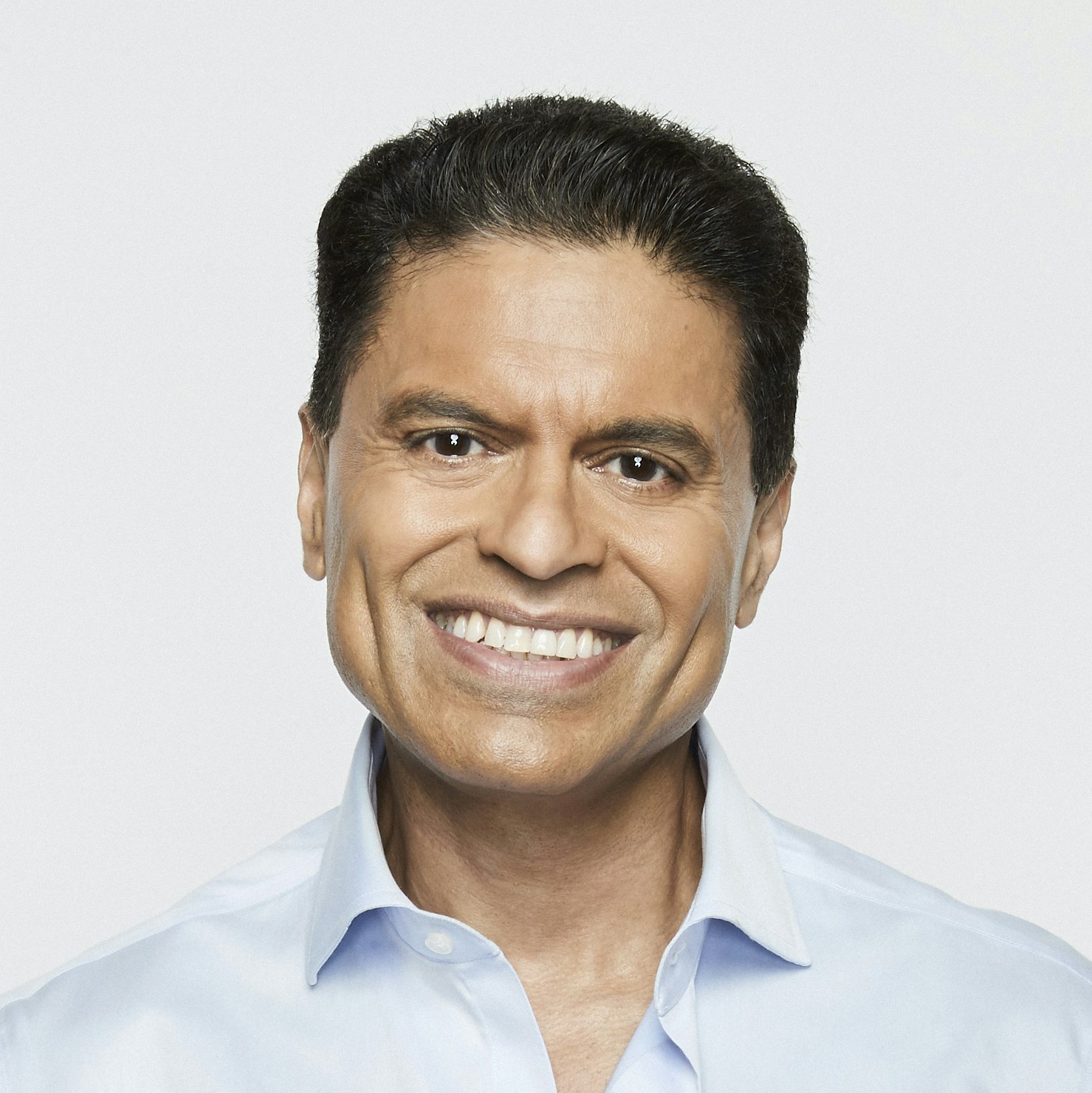
Fareed Zakaria: We need to think about the idea that any American who is displaced, either because of trade or technology, at any point in their lives can go and get three to six months of retraining at a local community college of their choice. This would be paid for by the federal government. Local industry would identify the needs — right now we need welders or right now we need retrofitters, or whatever it is — and the federal government would pay for it. It would be on the scale of the G.I. Bill.
Zakaria concedes that it’s an ambitious plan, but he points to Germany’s apprenticeship system as a blueprint for retraining and growing blue-collar jobs in America.
Learn More
Additional Information
Resources
"Robust Apprenticeship Program Key To Germany's Manufacturing Might" from NPR
"Western Populism May Be Entering an Awkward Adolescence" from the New York Times
Explore More
USA


Many more Americans are struggling to survive and make ends meet than is typically portrayed in the media and public policy debates. And when poverty is depicted, harmful and...


America’s “second founding” came on the heels of the Civil War, when the architects of the 13th, 14th and 15th amendments thought long and hard about how to enshrine civil rig...


It’s been decades since the United States has updated its immigration policies in any sort of comprehensive way, and the problems and suffering at the southern border have per...


Whether they publicly tout it or not, U.S. technology companies play a powerful role in politics, cultural issues and the way we live. Founder and investor Peter Thiel is one...

The 2024 presidential election is only months away, and the past few weeks alone have brought shocking headlines that change the political ground we stand on — an attempted a...


Sizable electorates around the world are flocking to populist candidates who promise power, domination and a return to better times. The global experiment in liberalism seems...


The federal right to abortions in the United States has been overturned, access to contraception and IVF services are threatened in many states, and the gender wage gap persis...


The Supreme Court has issued another series of controversial and consequential decisions this term, fueling discussion on the current state of the judicial branch. Recent poll...
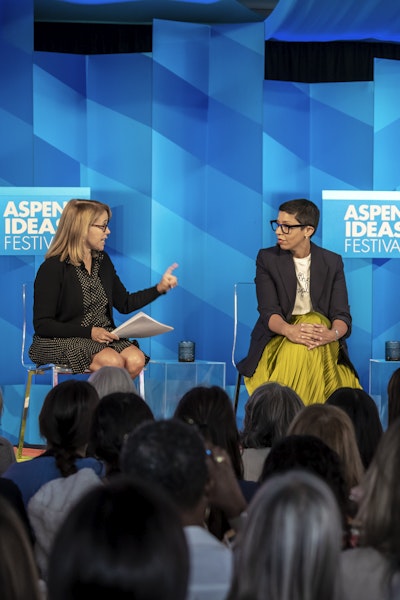
The rollback of reproductive rights, the push to end no-fault divorce, and gun laws that allow domestic abusers to own a firearm are turning the clock back on women’s rights....

Americans feel more polarized than ever, but two governors from opposite sides of the aisle have made it their mission to show otherwise.
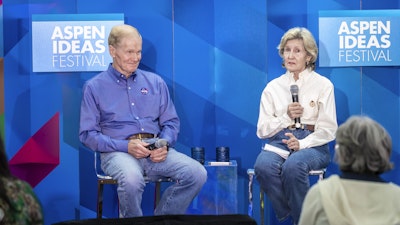
Former Senators Bill Nelson and Kay Bailey Hutchison discuss the bipartisan work that defined their careers, suggest ways for today’s elected officials to find common ground,...
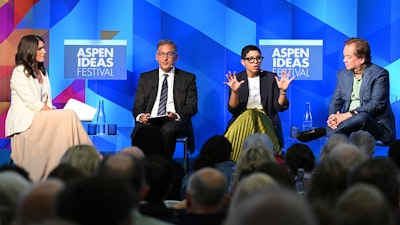
As the Supreme Court concludes another contentious term, it is once again reshaping the legal landscape. With cases on abortion, gun rights and social media — and potentially...

Two billion people worldwide are set to vote in elections this year, amid global conflict, societal mistrust, broken information ecosystems — and the truth-destroying disrupti...

Amid seismic shifts in the entertainment world, Oscar-, Golden Globe- and Emmy-winning Brian Grazer has managed to keep pivoting to new ways to tell stories in movies, TV and...

Hurray for the Riff Raff is more than Alynda Segarra’s musical moniker; they spent their youth hopping trains across America, capturing that life in youthful poetry then and a...

Images communicate truths, and also lies. Learning to pay attention to photographs can help us discern. An art and cultural historian and a visual artist host a master class o...

Firearms are one of the leading causes of death among children in the U.S., a country where there have been more than 150 mass shootings in the first five months of 2024. Sit...

Peter Thiel has made no secret of his feelings about economic and cultural issues. Hear him discuss his vision for the future, his bets on AI and digital currencies, his thoug...

Join our panel of expert analysts for a pre-debate conversation about how the 2024 election is shaping up. Stay for the debate watch party and refreshments, then hear the pane...

From climate change and mental health to hate crimes and chronic school absenteeism, no challenge is too big for young people’s community-changing solutions. Hear from teams o...


